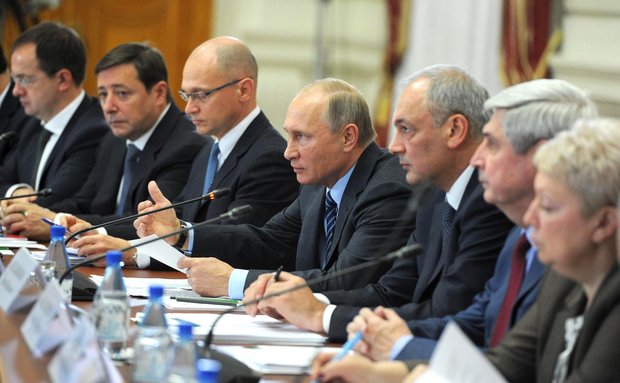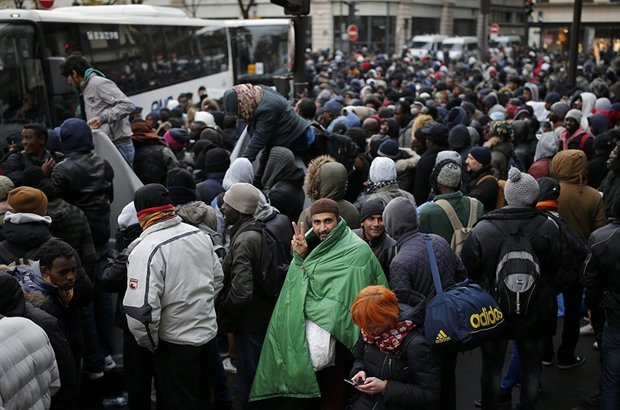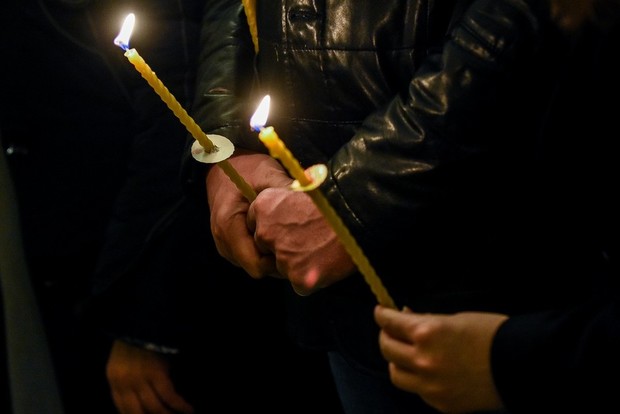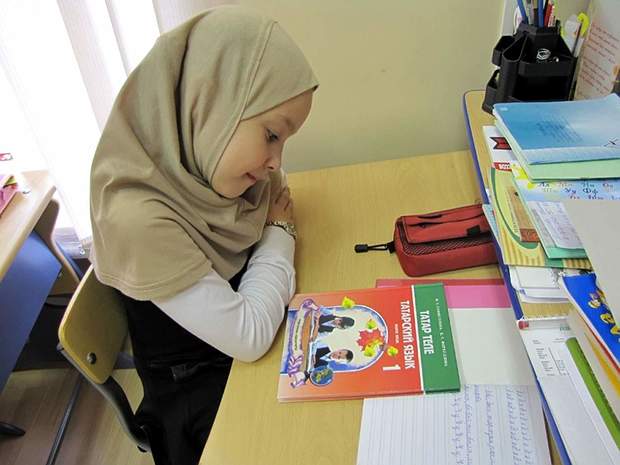Leokadiya Drobizheva: ''There are problems with the teaching of the Tatar language in Tatarstan''
Famous ethnosociologist: about deprived nationalities and mixed marriages
In an interview to Realnoe Vremya, noted ethnosociologist Leokadiya Drobizheva, a Doctor of Historical Sciences, director of Interethnic Relations Research Centre of the Institute of Sociology of the Russian Academy of Sciences, told about the debatable ''law on the Russian nation'' and deprived ethnicities. She also answered questions about the transition to the Latin script and mixed marriages.
Concept, not a law
The law on Russian nation that Putin instructed to create last year is an issue that is discussed a lot but without specifics. What a legal act is it? Whatstage is it at?
Not a law but a concept of the enactment regulating relations in strengthening the unity of the multi-ethnic people of the Russian Federation is prepared. I will note it is not about the Russian nation – it is not a correct interpretation of the president's instruction. A working group is creating a project of the law about state national policy of the Russian Federation to provide the unity of the Russian nation. Limiting everything to the Russian nation is not completely correct and right. We are saying that points of the strategy of the state national policy, which we adopted, which exists and is carried out now, needs to become a law. We are preparing such a project – precisely a concept, not a law. A working commission was created to create it. It is working under the Council for Interethnic Relations of the President of the Russian Federation. The very council has been working since 2012. It discussed many problems that are of concern to our multi-ethnic society. According to the latest meeting on 31 October 2016, this instruction was given, after we discussed the realisation of the state national policy in the presidential council. I personally reported on the civil identity as we have a civil identity of Russians and ethnic identity – Tatars, Russians, Chuvashs, etc. Then one of the offers was made: what if we create a law? And it was decided to create a concept, which will be discussed later. State bodies – State Duma, Federation Council – need to approve it, so that it will become a law. Laws are prepared by some specialised ministry regulating this area. We have Federal Agency for Ethnic Affairs. After we create a concept, the agency will prepare the bill, then it goes to the State Duma.

''Not a law but a concept of the enactment regulating relations in strengthening the unity of the multi-ethnic people of the Russian Federation is prepared. I will note it is not about the Russian nation – it is not a correct interpretation of the president's instruction.'' Photo: kremlin.ru
When will the concept and the very bill be prepared?
We need to prepare the concept by August this year. But the main problem we faced is that this instruction was not understood correctly. So people started to say: ''What a law?'' I replied myself: ''Laws don't create ethnicities''. And it is true: ethnic, ethnic and cultural, civil nations appear, but law can't create them. A community of people needs to appear, the state takes their need into account. All the countries are interested in consolidating civilians and put all the effort to it.
Towards far rights
Kazakhstan starts switching to the Latin script. As we remember, such attempts were made in the past in Tatarstan. Uzbeks and Azerbaijanis switched to it earlier. What do you think of the idea of switching of Turkic ethnicities to Latin?
I do know including what arguments were used here in Tatarstan to switch to the Latin script. These arguments are very serious. But here both interests of the Russian society in general and certain territories have to be taken into account. In other words, it is an issue of a long dialogue – it is my opinion. It can't be good or bad for everyone. One needs to know how to give way at times and defend interests.
Far-right forces are gaining popularity in Europe. Such politicians as Marine Le Pen openly deliver speeches with quite radical mottos. Why are they so popular?
First of all, because of a mass flow of migrants who have another culture. This flow is fast and unexpected, they don't have enough time to adapt migrants. If earlier migrants were invited to work with them, people could be interested in their labour force, now these migrants are hired almost forcedly, people need to be somewhere. It all causes conflicts, which gives the Rights points, votes.

''If earlier migrants were invited to work with them, people could be interested in their labour force, now these migrants are hired almost forcedly, people need to be somewhere.'' Photo: gs.fm
Can anything similar happen in Russia?
It's possible. And Zhirinovsky always talks about it. This is why he gets votes.
Nationality is often linked with religion: Russians need to be Orthodox Christians, Tatars – Muslims…
These are logical ties with religion, but not compulsory.
But Russian churches often claim that Russians are Orthodox Christians. Are these phrases correct?
These are more emotional statements. They are sometimes linked with historical ideas of formation of an ethnicity. It happens more often if people not only belong to this religion but also practise it, then they say that only their religion is correct, another thing is not accepted. Many people say that God is one, religions are different. Everyone has their own interpretations. And everyone is free to choose their religion.
Chief Mufti Talgat Tadzhuddin says the same thing.
I even did not know it.

''It happens more often if people not only belong to this religion but also practice it, then they say that only their religion is correct, another thing is not accepted. Many people say that God is one, religions are different. Everyone has their own interpretations. And everyone is free to choose their religion.'' Photo: Oleg Tikhonov
Tatarstan and Bashkortostan have quite many mixed marriages. And directors of national organisations are alarmed because children in such families speak Russian, get the Russian mentality.
I know this problem. Tatarstan has quite many mixed marriages – almost 1/3 of couples in cities. I think it is a good indicator of the situation in the republic. It means that people are not afraid of intermarrying – it is a good indicator. For instance, in the USA, this is one of the most important indicators setting the character of interethnic relations. If there are many interethnic marriages, and they exist, it means the society is fine. Russia has not paid serious attention to such marriages. It was a sign of well-being in the Soviet era too. Conservation of identity in these marriages is a matter of a certain situation. Children in mixed marriages often get the nationality of their dad, according to the authority or prestige of an ethnicity.
For instance, in the Soviet era, we examined the situation in Baltic states. The biggest Russian community is in Latvia. When the situation was good, the Russian nationality was chosen in mixed marriages. When conflicts began, the Latvian one was chosen. It all reflects the situation. In general, people are free to choose a marriage. When people say that you need to connect your fate with a person of your nationality, it is a certain pressure on the person. Freedom is a very valuable thing in life.

''Tatarstan has quite many mixed marriages – almost 1/3 of couples in cities. I think it is a good indicator of the situation in the republic. It means that people are not afraid of intermarrying – it is a good indicator.'' Photo: Maksim Platonov
Problems of Russians in neighbouring countries
I have recently been to Kazakhstan. People don't hide they did not impede Russians from leaving the country by promoting Kazakhs in all the spheres. Is the problem of Russians in post-Soviet countries topical?
The problem of Russians really exists in these states. It is linked with the changed status of the Russians because they lost the status of an older brother there and became a minority. And the Russians are not ready to accept the position of the minority, though this position gives them a lot. In Baltic states, when people started to accept the status of minority, they were backed by the UN, public organisations. Positions of minorities are always supported in society. The better protection of minorities' rights is, the more democratic and equal the society is. But the Russians can't accept it. Laws don't say that a Russian is an older brother. In addition, the Central Committee of Uzbekistan, Georgia or another republic always said at every meeting of the Party: ''We thank the older brother.'' Now the equity of nations is one of the elements of the new politics in Russia. This is why we would find it difficult to accept this status because the Russians remember how they really helped people of other nationalities to build their economy. Now the situation in different countries is different.
I know the tendency not to impede the departure of the Russians appears because Kazakhs hardly support the majority in the country. It is important for them to have their own majority. It happens because they have an advantage: it is the main nationality, their language is official, mainly Kazakhs are appointed to high posts, that is to say, they really have an advantage. They lose somewhere as Russians think because they are thought not to show their potential. This is why will the outflow of Russians continue? I think, it will.
It is curious what countries Russians leave. When the Union dissolved, we held surveys. All the people said more Russians would leave Baltic states: they are called invaders, Fascists there. But the main outflow was not from Baltic states but from precisely Middle Asian republics. Why?

Probably, in Central Asia it has become worse in contrast to the Baltic States.
Since we have conducted interviews before, we immediately identified the cause. First, it has become better to live in democratic countries, safer, economically more prosperous. The most interesting is that the Russian recognized for Latvians and Estonians business qualities, in other words, an equal partner. But in Kazakhstan, Uzbekistan, in the eyes of a local Russian, local nationalities, in their view, were inferior by these qualities, and they couldn't accept their higher status compared to themselves. That is why they left more often.
You have been in Tatarstan not for the first time. What tendencies do you see? What has changed? Are there new problems?
When I come to Tatarstan, I'm mostly happy. Because it is the subject of the Federation, which gives satisfaction, first of all due to the fact people here know how to do real work. Of course, challenges are everywhere, but here these challenges are being overcome. Tatarstan is an example to many other territories, because the money that appear here are implemented in the form that is obvious for people: construction, replacement of dilapidated housing, innovative technologies, implementation of new practices in the online community. Such territories, which are quite prosperous, for example, Novgorod Oblast, Yekaterinburg, look at the example of Tatarstan. The problems of the Tatarstan Republic are mostly economic, common with other subjects of the Federation. There are problems with the teaching of the Tatar language.